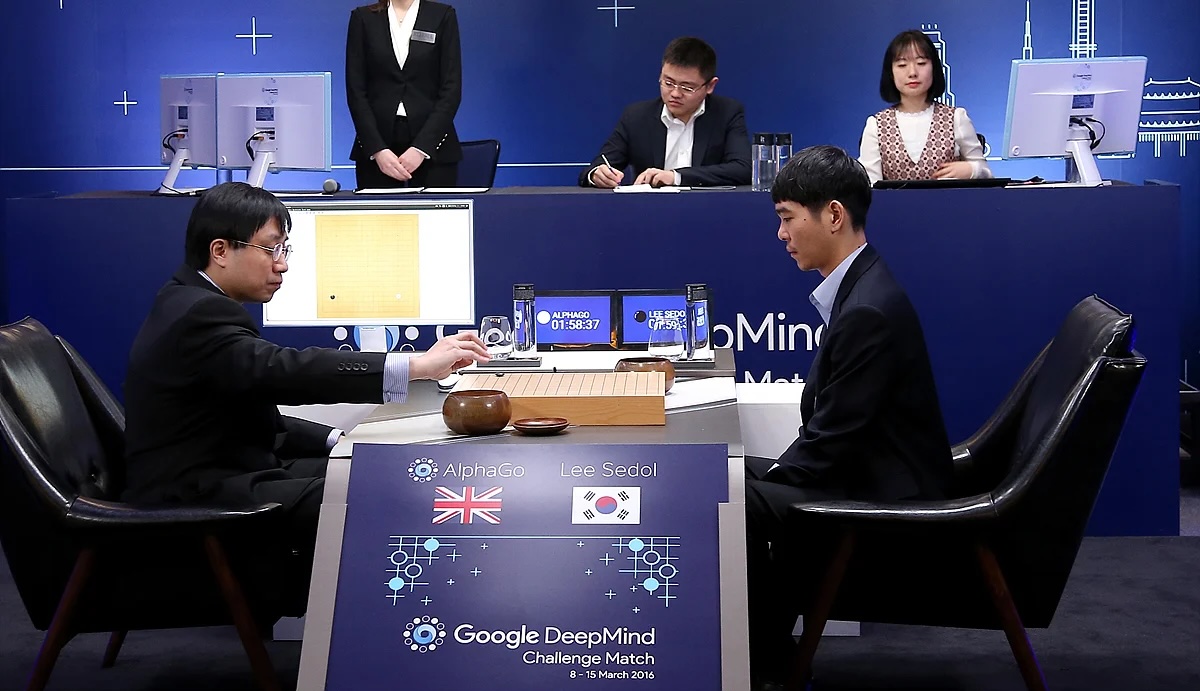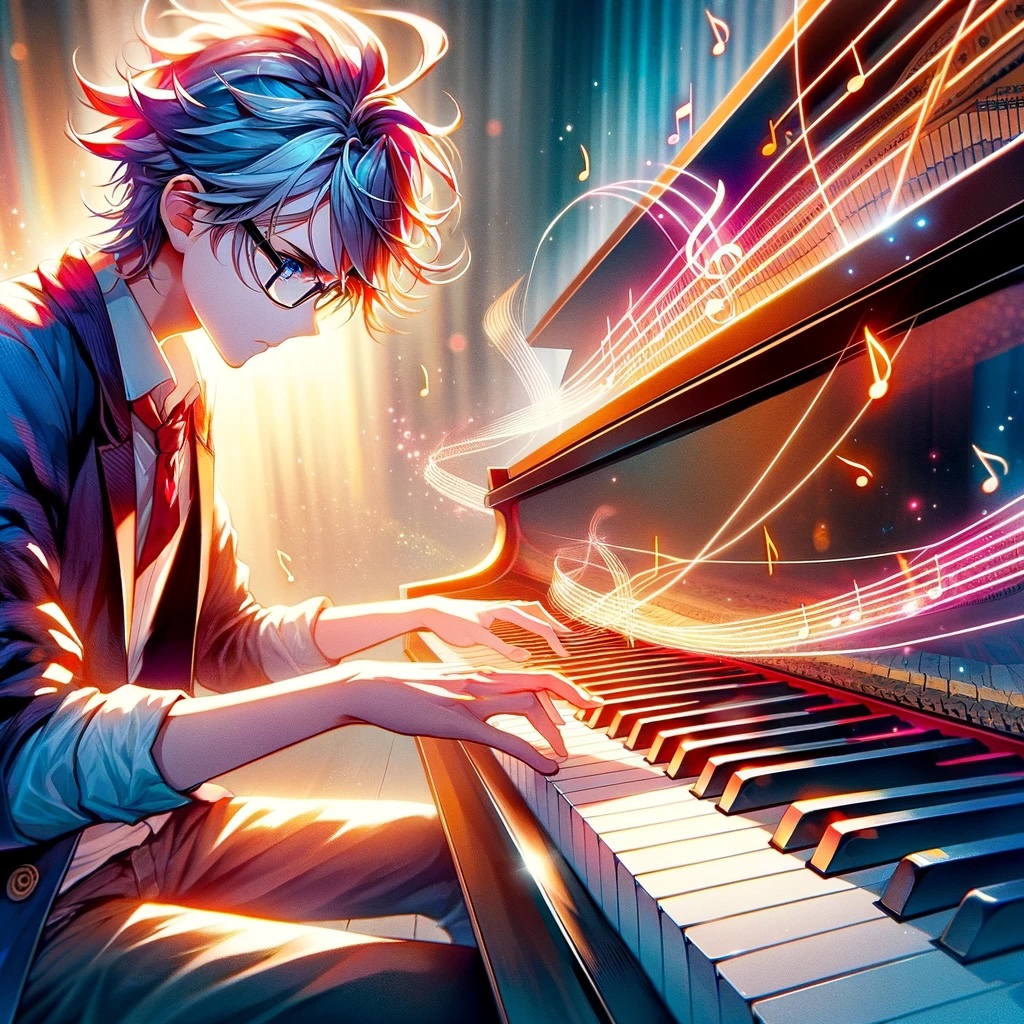AlphaGo - Creative Approach to Winning in an Ancient Game of Go
I have recently watched an award-winning documentary called AlphaGo. It follows a team of Google’s DeepMind engineers who built a system to compete in an ancient game of Go. The documentary follows the DeepMind team as their AI model competes against, at the time, world Go champion - Lee Sedol. If you haven’t seen the documentary, I highly recommend watching it as it’s both incredibly interesting and insightful.

Five games were played with AlphaGo coming out victorious in four out of five matches - a shocking and rather upsetting result for the huge Go community.
The documentary left me with a range of emotions varying from amazement and excitement to sadness and anxiety. Moreover, it left me with three questions that kept bugging me:
- What is creativity?
- Is Alpha go creative?
- How do I feel about world’s best Go player losing to an AI model and how might this impact my hobbies and line of work in the future?
In this post I am going to explore these questions in some depth. I understand that whatever answers I will come up with, will be highly subjective, but it doesn’t mean I shouldn’t seek these answers. Let’s dive in.
Why Go?
Many of us have heard of a game called Chess, so let’s start by comparing Chess to Go. A game of Chess has a smaller board and multiple distinct pieces with different mechanics and rules surrounding them. Go, on other hand, has a much larger board, only one distinct piece per sice playing but a significantly higher number of possible moves.
| Chess | Go | |
|---|---|---|
| Board Size | 8x8 | 19x19 |
| Distinct pieces | 6 | 2 |
| Approximation of possible board positions | 10^50 | 10^170 |
Both games can be incredibly complex and the number of possible board positions can be unimaginable. Here’s some numbers for comparison:
- 10^13 is an approximate number of cells in a human body
- 10^27 is an approximate number of atoms in human body
- 10^69 is an approximate number of atoms in the Milky Way galaxy
- 10^170 is a theoretical number so large that we cannot comprehend it
The key take-away here is that Go can be an incredibly complex game and in order to master it you need a human player or a computer system capable of churning through all this complexity. It is therefore a problem worth solving in the domain of AI.
The Creative Move 37
AlphaGo made a move that media later named Move 37. I am not going to pretend that I understand the mechanics of the move, but what I do know is that media and Go community first saw it as a mistake and then, shortly after, realised it was creative. Lee Sedol himself said that it was “really creative and beautiful”. This takes us to my first question.
What is Creativity?
Let’s try defining what creativity means before exploring the subject further. The word stems from the Latin creare, which means to create or make.
Would you say that the following are examples of creativity?
- A child drawing lines and shapes with a marker pen on a wall
- A cook experimenting with new flavours in a dish
- A musician composing a new melody on the piano
- A gardener arranging a colourful flower bed in a memory of a loved one
- Army general devising a new battle strategy to gain advantage over their enemy

All of the above are creative according to our definition. Assuming we are in agreement here, then we can suggest that creativity doesn’t have to be useful, unique, or good.
How about Darwinism? The evolution of species through natural selection. Is that creative too? If it is, then surely everything that stems from it is also by default creative? I think Darwinism is a great example of creativity, and therefore I would like to revise the above statement.
Creativity doesn’t have to be useful, unique, good or owned by humans.
Creative Duopoly
This might be a tough pill to swallow for many (especially Lee Sedol), but I think this is exactly why Move 37 was dubbed as creative. We, humans, got used to being on top of both the food chain and the creativity ladder. With the rise of AI, we will have to accept the fact that we no longer have a monopoly on creativity and that AI will excel in creativity far beyond our current capabilities.
Reflections
I wrote this post because I couldn’t explain how I felt about Lee Sedol losing to an AI model. I also didn’t know what to think about the impact of AI on my line of work and my hobbies.
Lee Sedol went through a “baptism by fire.” His whole world got turned upside down within two hours, and he did incredibly well not giving up and embracing the challenge. My view is that we should live our lives to the fullest and get to the end full of wisdom and covered with scars of rich and full life. Therefore, I hope he sees this experience as both a blessing and a curse from which he grows as a person.
What about the impact on my line of work and my hobbies? This was a massive wake-up call for me. I would hate to find myself in Lee Sedol’s position, suddenly realizing that my skill is no longer unique or in demand and can now be replaced by an AI model. Upon realizing this, I have embraced AI fully and am excited about what the future holds.
How about hobbies? I do my hobbies because I love the learning process and the state of flow - not the result, so I’m not at all worried about AI and how it might impact my hobbies. If anything, I might ask it to help me compose new music mixing styles of Ludovico Einaudi and Hans Zimmer.